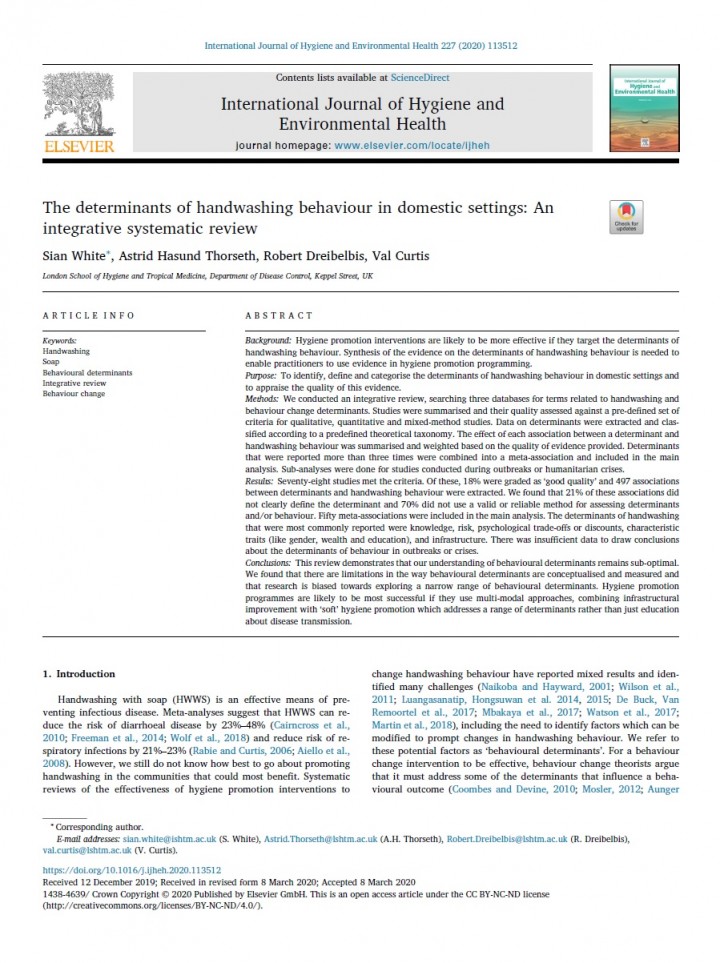The Determinants of Handwashing Behaviour in Domestic Settings: An Integrative Systematic Review White, S., Thorseth, A. H., Dreibelbis, R., Curtis, V. (2020)
Background: Hygiene promotion interventions are likely to be more effective if they target the determinants of handwashing behaviour. Synthesis of the evidence on the determinants of handwashing behaviour is needed to enable practitioners to use evidence in hygiene promotion programming.
Purpose: To identify, define and categorise the determinants of handwashing behaviour in domestic settings and to appraise the quality of this evidence.
Methods: We conducted an integrative review, searching three databases for terms related to handwashing and behaviour change determinants. Studies were summarised and their quality assessed against a pre-defined set of criteria for qualitative, quantitative and mixed-method studies. Data on determinants were extracted and clas-sified according to a predefined theoretical taxonomy. The effect of each association between a determinant and handwashing behaviour was summarised and weighted based on the quality of evidence provided. Determinants that were reported more than three times were combined into a meta-association and included in the main analysis. Sub-analyses were done for studies conducted during outbreaks or humanitarian crises.
Results: Seventy-eight studies met the criteria. Of these, 18% were graded as ‘good quality’ and 497 associations between determinants and handwashing behaviour were extracted. We found that 21% of these associations did not clearly define the determinant and 70% did not use a valid or reliable method for assessing determinants and/or behaviour. Fifty meta-associations were included in the main analysis. The determinants of handwashing that were most commonly reported were knowledge, risk, psychological trade-offs or discounts, characteristic traits (like gender, wealth and education), and infrastructure. There was insufficient data to draw conclusionsabout the determinants of behaviour in outbreaks or crises.
Conclusions: This review demonstrates that our understanding of behavioural determinants remains sub-optimal. We found that there are limitations in the way behavioural determinants are conceptualised and measured and hat research is biased towards exploring a narrow range of behavioural determinants. Hygiene promotion programmes are likely to be most successful if they use multi-modal approaches, combining infrastructural improvement with ‘soft’ hygiene promotion which addresses a range of determinants rather than just education about disease transmission.
Bibliographic information
White, S., Thorseth, A. H., Dreibelbis, R., Curtis, V. (2020). The Determinants of Handwashing Behaviour in Domestic Settings: An Integrative Systematic Review Elsevier GmbH
Filter / Tags
English
Downloads
The Determinants of Handwashing Behaviour in Domestic Settings: An Integrative Systematic Review
Type: application/pdf
Size: 6.02 MB

